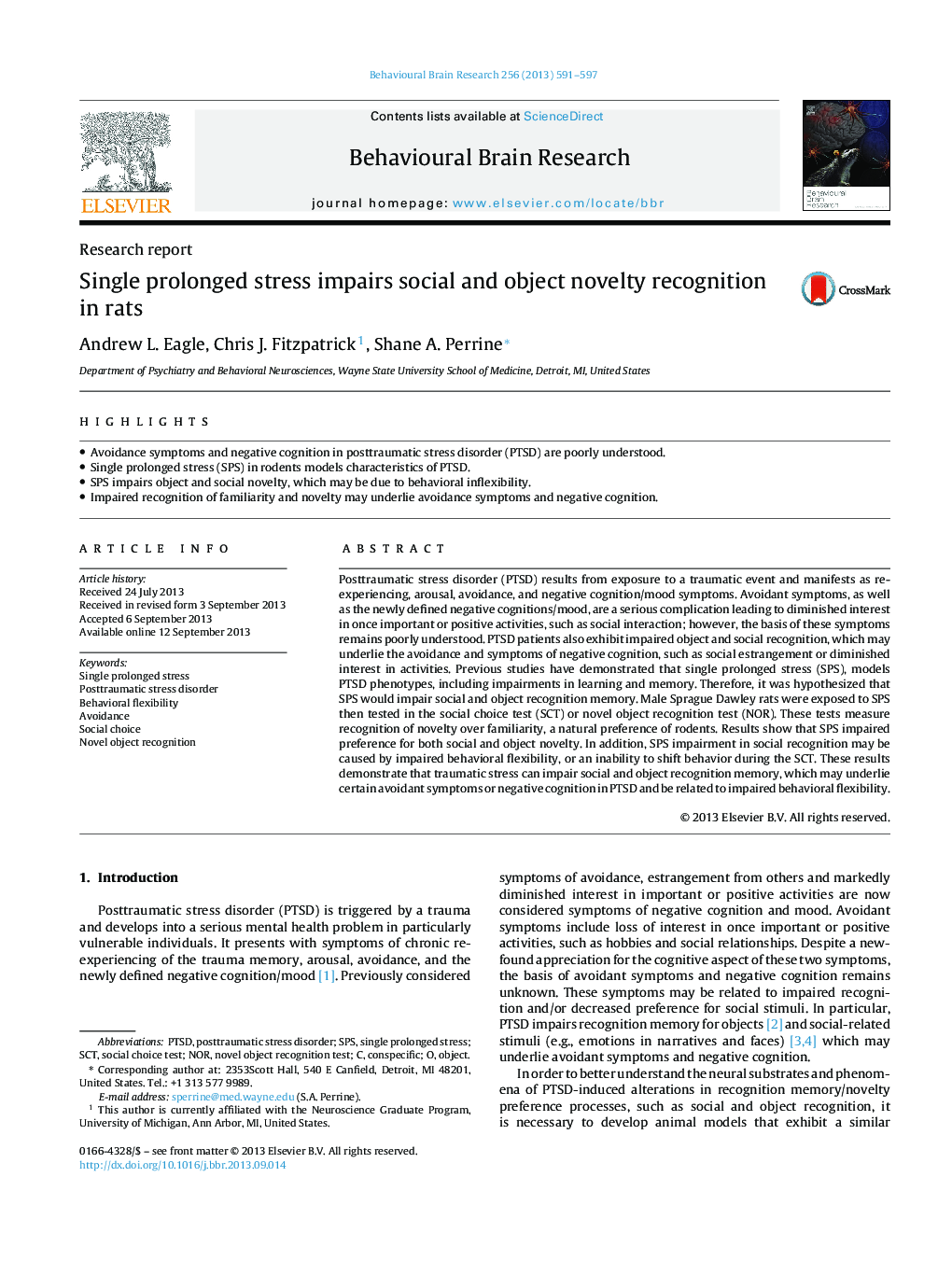| Article ID | Journal | Published Year | Pages | File Type |
|---|---|---|---|---|
| 6258886 | Behavioural Brain Research | 2013 | 7 Pages |
â¢Avoidance symptoms and negative cognition in posttraumatic stress disorder (PTSD) are poorly understood.â¢Single prolonged stress (SPS) in rodents models characteristics of PTSD.â¢SPS impairs object and social novelty, which may be due to behavioral inflexibility.â¢Impaired recognition of familiarity and novelty may underlie avoidance symptoms and negative cognition.
Posttraumatic stress disorder (PTSD) results from exposure to a traumatic event and manifests as re-experiencing, arousal, avoidance, and negative cognition/mood symptoms. Avoidant symptoms, as well as the newly defined negative cognitions/mood, are a serious complication leading to diminished interest in once important or positive activities, such as social interaction; however, the basis of these symptoms remains poorly understood. PTSD patients also exhibit impaired object and social recognition, which may underlie the avoidance and symptoms of negative cognition, such as social estrangement or diminished interest in activities. Previous studies have demonstrated that single prolonged stress (SPS), models PTSD phenotypes, including impairments in learning and memory. Therefore, it was hypothesized that SPS would impair social and object recognition memory. Male Sprague Dawley rats were exposed to SPS then tested in the social choice test (SCT) or novel object recognition test (NOR). These tests measure recognition of novelty over familiarity, a natural preference of rodents. Results show that SPS impaired preference for both social and object novelty. In addition, SPS impairment in social recognition may be caused by impaired behavioral flexibility, or an inability to shift behavior during the SCT. These results demonstrate that traumatic stress can impair social and object recognition memory, which may underlie certain avoidant symptoms or negative cognition in PTSD and be related to impaired behavioral flexibility.
